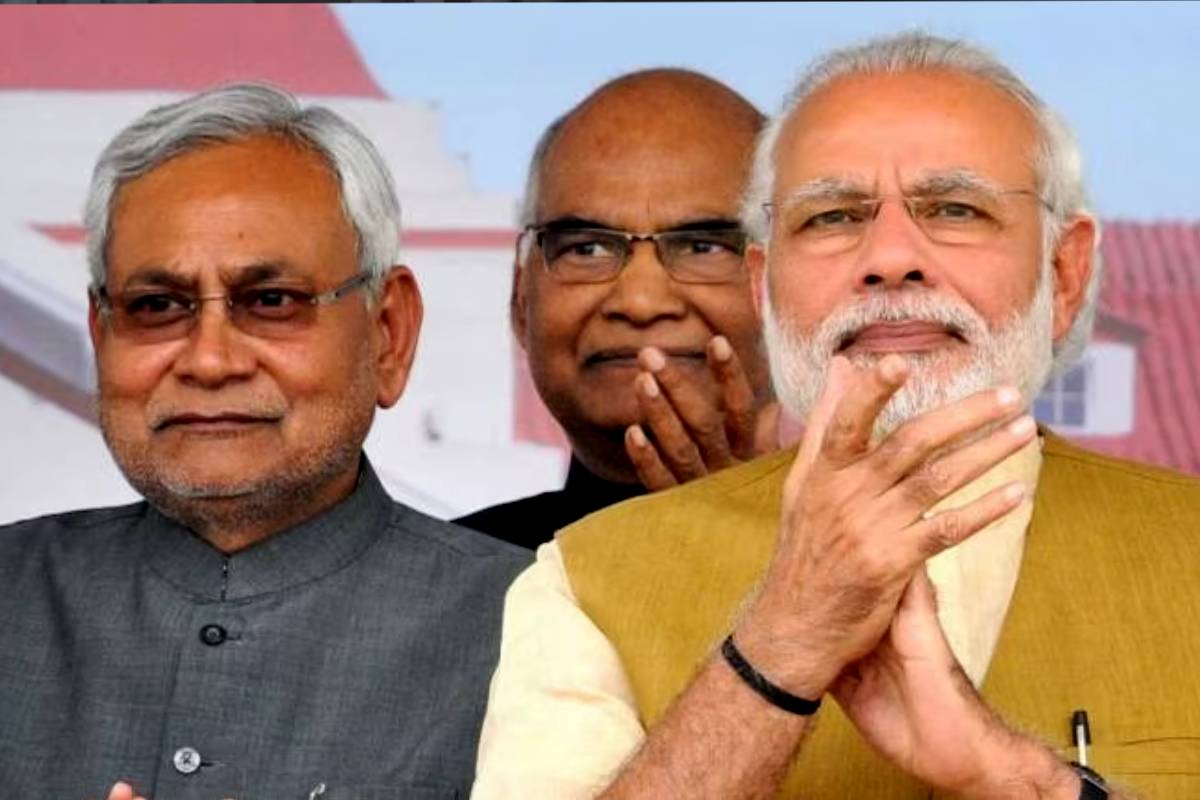PATNA: Nitish Kumar, the eight-time Chief Minister of Bihar, has once again aligned with the BJP, marking his fifth flip-flop in a decade. This surprising move, months before the Lok Sabha polls, has left many questioning the BJP’s decision to welcome Kumar back into the NDA fold.
Nitish Kumar, an eight-time Chief Minister and key face of the Opposition’s INDIA bloc, has once again joined hands with the BJP after a series of political flip-flops. This decision, marking his fifth alliance shift in a decade, has raised questions about the BJP’s motivations and the impact on Bihar’s political landscape.
Just a year ago, Union Home Minister Amit Shah declared that the BJP’s doors were closed for Nitish Kumar. Now, as Kumar submits his resignation, BJP MLAs in Bihar have reportedly expressed support for him. The big question is why the BJP is willing to welcome him back into the National Democratic Alliance (NDA) fold despite his history of political somersaults.
FLASH: #SamratChaudhary and #VijaySinha to be Deputy Chief Ministers of Bihar. They will collaborate with Nitish to lead the government.
In a major political development, the #Mahagathbandhan government in Bihar has fallen. Nitish Kumar has resigned from his position, and now,… pic.twitter.com/EbNDpypKKN
— The New Indian (@TheNewIndian_in) January 28, 2024
ALSO READ: Bihar leadership shuffle: Samrat and Vijay Sinha to become Deputy CMs
One significant factor is Kumar’s role in the Opposition’s INDIA bloc. He played a crucial part in forging a united front against the BJP, making his recent alliance shift a setback for the opposition months ahead of the Lok Sabha polls. Congress leader Jairam Ramesh’s acknowledgment of Kumar’s role in convening INDIA meetings adds weight to the BJP’s claim that the opposition bloc is an unstable alliance.
Senior BJP MP and former Deputy Chief Minister Sushil Kumar Modi on Thursday, had said that “doors never get closed permanently in politics” and “they open as per requirement”.
For the BJP, Nitish Kumar’s flip-flop provides a strategic advantage in Bihar, a state with 40 Lok Sabha seats and perceived as an INDIA stronghold. The strained relations between Congress and regional parties in other states add complexity to the opposition’s unity. By bringing Kumar back, the BJP aims to strengthen its position in Bihar and weaken the INDIA bloc’s foundation.
Examining the state equation, Nitish Kumar’s declining popularity and electoral performance over the past decade reveal a consistent slide.
ALSO READ: Bihar CM Nitish Kumar resigns, ponders joining NDA amid INDIA bloc turmoil
FLASH: After resigning, Nitish Kumar said, “Today we have submitted our resignation, ending the Mahagathbandhan government in Bihar. Considering people’s opinions, we decided to resign. The process of forming a new government in Bihar has begun. We will present our claim to the… pic.twitter.com/65B3ReZ5u2
— The New Indian (@TheNewIndian_in) January 28, 2024
Despite holding the Chief Minister’s post, his party, the JDU, has witnessed a decline from 115 seats in 2010 to 43 in 2020. This decline in numbers means that even if Kumar retains the Chief Minister post, the BJP holds more influence in Bihar’s government decisions, creating a win-win situation for the BJP.
The perception game is also crucial. Kumar’s frequent alliance changes have impacted his public image, earning him the moniker ‘paltu kumar’ (the one who keeps switching sides). Unlike other states where the BJP was accused of engineering mutinies, Kumar’s shifts make the BJP less likely to be viewed as the villain in this scenario.
BJP leaders, reviving their “jungle raj” rhetoric, emphasize that the party cannot leave Bihar in the hands of ‘Jungle Raj,’ referring to the corruption and crime issues during the RJD’s tenure. This narrative seeks to justify the alliance with Kumar as a move to ensure stability and governance.










